File Zero Read online
Page 13
“Sir,” said Davis, “they’re demanding that we stand down and return to Bahrain.”
Warren scoffed. “You can tell them we don’t take orders from terrorists.”
Jesus. Cohen’s heartbeat doubled its pace. Has the captain lost his mind? Moreover, what did the Iranians have to threaten them with? If they fired, they’d be lucky to get a single direct hit before the Constitution blew them out of the water. All three ships were within range of Tomahawk missiles, and were quickly entering torpedo range.
Davis relayed the message in Farsi, though Cohen doubted that he used the same terminology as Warren. The captain stared out the observation window, his jaw set in grim determination or, as Cohen saw it, mulish obstinance.
“Tell them to stand down, Davis.”
“Sir, that’s the same thing they’re telling us,” Davis said, desperation measured in his voice.
“Four miles,” Cohen announced as the gap between them closed.
“Our job is to protect the strait,” Captain Warren declared.
“Sir,” Davis pleaded, “don’t you see that’s what they think they’re doing?”
“We have orders, Davis, from the highest office in the world,” Warren growled. “We don’t stand down because a few ramshackle boats get in our way and tell us to. Miller, stay on course!”
Don’t fire at us, Cohen thought. Don’t be stupid. Just let us pass. But he already knew that wasn’t an option.
“Cohen,” Warren said, his voice low, “I want to know the instant they fire on us.”
“Yes sir,” he murmured. His gaze was glued to the radar console, waiting for the tiny blip or Gilbert’s voice in his ear to confirm visual confirmation that the Iranians had fired rockets. One day earlier, it had been a joke, something to laugh about while the new guys pissed themselves over rockets that were three hundred meters or more from target.
Today it would mean the unyielding demolition of these three ships.
A blip appeared on the screen and Cohen’s breath caught in his throat.
But it wasn’t from the IRGC ships.
“Missiles out!” Gilbert shouted through the radio.
“Sir!” Cohen couldn’t believe his eyes. The missiles were fired from behind the Constitution, six of them in all, and on the two-dimensional radar screen it appeared that they were coming straight at the destroyer.
Before Cohen could relay the message, a half dozen tactical ballistic Scud missiles, thirty-seven feet long and carrying a payload of approximately fifty kilotons each, soared over the Constitution. Even behind the thick protective glass of the bridge, the roar was deafening. The seat quaked under Cohen. He tore off his headset and stood, looking over the array and out the observation window, as the Mach-5 missiles struck the three IRGC ships from less than four miles out.
To call the damage immediate and devastating would have been an understatement. Where the ships had once been was instantly a conflagration, a swirling maelstrom of fire and smoke visible from more than twenty miles in any direction.
Davis put one hand over his mouth. Miller sat at his console with his head bowed and eyes closed. Warren watched, unblinking, as the three IRGC ships were utterly and completely destroyed.
The Scud missiles had come from the USS Pennsylvania, there was no doubt about that. The dreadnought was the only ship in the vicinity carrying that sort of payload.
And they had just broken the rules of engagement.
At long last, Warren turned from the window. He took a measured breath before addressing Davis. “Get on the horn to the Pennsylvania. Confirm targets destroyed.”
Cohen looked over at him and saw a shadow of anger flash across his face. Davis held his chin high as he said, “With all due respect sir, if I get back on this radio it’s going to be to report this incident to the admiral.”
“I see.” Warren appeared disappointed. “They fired first, Davis.”
He frowned in confusion. “What?”
Warren looked from him to Cohen to Miller. “They fired first. We refused to stand down, and the IRGC fired a rocket. The Pennsylvania returned fire with long-range missiles to ensure destruction.” He let that sink in for a moment before continuing. “That’s what the report is going to say. That’s what the report from the Pennsylvania is going to say. If you have a different version of the account, speak up now. You’ll have plenty of time to get your facts straight in the brig before the inevitable court-martial.”
He glanced about again. Davis stared back in stunned silence. Cohen could not meet the captain’s eyes. Miller kept his head bowed.
“Good,” Warren said quietly. “I’d hate to lose any of you. Miller—continue on course to the strait. Cohen, keep an eye on those blockade ships.”
Lieutenant Cohen slowly sank back into his chair, staring ahead at the radar screen but hardly noticing it. The captain’s words from only moments earlier ran through his head: No point in lying or trying to hide. He was right. The United States wanted a war, and they were going to get it.
CHAPTER EIGHTEEN
“Make a right up here,” Carver instructed, studying the map open on the tablet in his hands. Two red dots, so close they nearly overlapped into one, showed a position about a mile down the dirt road cutting between two vast Virginia orchards.
The driver, a Division man named Denham, eased the black sports car to the right. “I still don’t get it,” he muttered. “Why’d the CIA declare Zero dead if they think he survived that fall?”
Carver held back his sigh of irritation. Like most of the Division’s ranks, Denham—and his compatriot, Barrett, seated in the back seat—was thick-necked, handy with knife and gun, and unaccustomed to thinking on his own. It was a trait that made them apt soldiers, but made Carver prone to repeating himself.
“Because Agent Zero is smart,” Carver said evenly, “and clearly has help. But he is also predictable. By now he knows that he’s supposedly dead. The first thing he’ll do is get his daughters to safety. Slow it down a bit. Cut the headlights.”
Denham did as he was told. After sending Zero’s car plunging into the Potomac, Carver and his Division pals traded in the shot-up Jeep for the sports car and immediately went in pursuit of Zero’s girls, at the order of Deputy Director Riker. The four Division men who had been sent to Zero’s house earlier—two of them posing as FBI agents in an attempt to lend credibility to their little visit—had gone dark and, if Carver had to guess, were likely dead.
Their SUV’s GPS signature, however, was still active. And according to CIA techs, it just happened to be in the exact same place as both of the Lawson girls’ tracker implants, as well as their personal cell phones. According to the tracking app that Carver was currently monitoring, they were sitting on the very same dirt road, about fifty miles west of I-95 where Zero had met his ersatz demise.
Carver had had his doubts that Zero was still alive after the tumble over the cliff, but then a police report had cropped up mere minutes after; a man with a gun and an injured right hand had broken into a home and stolen a cell phone.
The CIA had stifled the report quickly, and their techs confirmed that the stolen phone was now inactive. But Carver was sure of what it meant: Zero must have contacted his daughters.
There was no way he could have gotten to the farm faster than Carver and his two cronies, which meant that this was their rendezvous point, and they were waiting for their father to arrive. With a little luck, Carver would get both of the girls and whoever was helping Zero. Then all they had to do was wait for him to get there.
“Can’t see a damn thing,” Denham muttered as the car bounced over tractor ruts in the dirt road. With the headlights off, the road was little more than a swath of shadow with silhouettes of trees on either side.
“Stop here,” Carver instructed. “We don’t want them to hear us coming. They’re a little less than a quarter mile ahead, as the crow flies.” He set the tablet in the center console and hefted the SAW, checking to make sure the magazine was full.
&nb
sp; The three of them hiked for about a hundred and fifty yards before Carver held up a fist to stop them. “Denham, flank left through the trees,” he whispered. “Barrett, head right. Keep your eyes and ears open. They might be hiding. No flashlights. No shots fired unless absolutely necessary. Meet at the SUV. Got it?”
“Got it.” Barrett picked his way into the carefully planted rows to the right, and Denham headed in the opposite direction, both with pistols drawn. Carver held the SAW barrel down and, keeping his posture in a slight crouch, continued straight onward down the dark dirt road.
He might be expecting us, Carver told himself. Someone like Zero doesn’t just forget about tracker implants. But he’s desperate. He knows we’re on him.
It felt like it took a long time to reach his destination, and it did; in the darkness and at his slow pace, it was a full five minutes before he saw the SUV, black with windows tinted, no lights on, sitting as silently as a grave right in the center of the narrow throughway. Carver paused about fifty feet from it and, sticking close to the dark tree line, lowered himself to one knee and brought the SAW to his shoulder. He waited nearly another minute before he saw the silhouette of Denham step out of the orchard, and then Barrett from the other side.
Both men shook their heads to signal that they had found nothing.
Carver nodded and rose to his feet again. He dared to edge closer to the SUV. He couldn’t see inside it, but he knew. They’re in there. They know we’re here.
“Come out,” he ordered loudly and clearly. “Open the door slowly. Hands where we can see them.”
The two Division mercs held pistols aloft, ready for anything. Almost anything. When nothing happened, they glanced over at Carver.
“There’s no way out of this,” he announced, loud enough for anyone inside the car to hear. “Just come out, and I promise you won’t be harmed.”
Still nothing happened. Carver swore under his breath. “All right. Denham, get the door. Rear passenger side. I’ll cover.”
Denham sidled close to the SUV, keeping the pistol in his right hand while reaching for the door handle with his left.He yanked the door open. The dome light inside the car clicked on with the opened latch, and Carver recoiled immediately.
“Good god,” he breathed.
“Fuckers!” Denham said hoarsely. “They killed Reinhold.”
With the light on, they could see inside the cab of the SUV, where four men were positioned in the seats, front and back. Two wore suits; two wore black with Division patches on their shoulders. But all four were dead.
“Son of a bitch!” Carver spat. He wrenched open the driver’s side door. In the center console were two cell phones, one in a pink case and one in green. Zero’s daughters’ phones.
But the implants…
It took him only a cursory glance to find those as well. He might not have noticed the rice-sized tracking chips if they hadn’t been sitting in a small drop of blood.
They cut them out. They killed four men. They ditched the SUV all the way out here. Rage bubbled up in Carver’s throat, acidic as bile. Zero definitely had help—likely Johansson, if he had to guess—and while they had been chasing him down I-95, his cohort was ditching bodies in the middle of nowhere, fifty miles out of the way.
“He’s going to pay for this,” Barrett grunted angrily. “What the hell do we do now?”
Carver lowered the SAW in one hand, frustrated and suddenly feeling exhausted. “I’ll call it in. We’ll have a team get out here and sweep for prints, hair, anything that might tell us who’s helping him. In the meantime, get their wallets, guns, phones, anything that might be incriminating if someone else comes along and finds them.”
Carver leaned over the body in the driver’s seat and reached for the glove compartment to get the SUV’s registration. He paused with his hand on the latch and looked down quizzically. There was something on the floor, bathed in shadow between the dead passenger’s feet.
“The hell?” he muttered as he reached for it.
Then he stopped. His breath caught in his throat as he realized what it was.
The block of C4 had two wire leads stuck into one end of it, trailing underneath the seat.
“Get clear!” Carver staggered back, nearly falling over, and scrambled away from the SUV as fast as he could. “Get cl—”
The explosion sent him sprawling forward onto his stomach in the dirt. The air was flattened from his lungs as the detonation, deep and powerful, sent a shockwave through his entire body.
When he could breathe again, he sucked in a ragged gulp and forced his limbs to move. His head pounded as he struggled to roll over. Black smoke roiled thickly from the blasted-out windows of the SUV, the cab and its contents engulfed in orange flames.
Another shape, smaller, burned in the dirt road near it. It was Denham. He’d been incinerated in the explosion.
“Barrett?” Carver croaked.
The Division merc sat up from the dirt ten feet from Carver, his face streaked with soot and bleeding from one ear. The reflection of the flames danced in his horrorstruck eyes.
“I’m here,” Barrett managed, his voice raspy. He groaned and slowly pulled himself to his feet. “Denham,” he murmured. “Bastards got Denham.”
Barrett’s head snapped to one side in the same instant a rifle shot cracked the air. He fell sideways in the dirt and didn’t move.
Carver lurched for the SAW, lying in the dirt a few feet from him. He tried to stand, but staggered and fell to his knees, still disoriented from the jarring explosion. Whoever had detonated the bomb was still here—and by the angle Barrett had been shot, they were hiding between Carver and his car.
He brought the SAW to elbow level and fired a volley of bullets into the darkness, spraying left and right. He was certain he wouldn’t hit his assailant, but he needed the cover fire; he was a sitting duck on the dirt road, illuminated by the burning SUV. Carver climbed to his feet again and lurched for the darkness of the orchard.
Another rifle shot cracked off, sending a plume of scattered dirt where his left foot had just been as he rushed toward the orchard. A second shot smacked into a tree and sent slivers of bark whipping his face. In the relative safety of the trees and the dark, Carver froze, gripping the SAW tightly and listening as intently as he could.
He heard nothing except the dull roar of the fire and the occasional crackling of its burning contents.
This isn’t Zero, he reasoned. Whoever this was had plenty of opportunity to blow the bomb before Carver noticed it. They had felled Barrett with a headshot but missed Carver twice. This was someone who didn’t seem to want him dead, but wounded enough to be out of the game.
He was pretty sure he knew who it was.
“You still out there, John?” he whispered to himself. Three more minutes passed in silence. If it was his former partner, he was smart enough not to approach the SUV or pursue Carver in the orchard. He would have run by now.
Still, Carver remained silent as possible as he picked his way carefully from tree to tree, his eyes adjusting to the darkness as he regained his balance and faculties. His head still pounded, but at least he could walk straight. He navigated the trees and traveled parallel to the dirt road, staying vigilant and doing his best to estimate the distance to where he’d left the black sports car.
It wasn’t until he was about to peer out of the orchard that he realized his error.
Denham had the keys.
“The hits just keep on coming,” he murmured. He could hotwire it, but that would require taking his attention off of the road long enough to do so. If his assailant was still here, Carver would be an easy target. Besides, he wasn’t about to take the chance that they hadn’t stuck a bomb in their car as well.
Instead he stayed in the orchard and kept on moving, another half mile before the trees ended and he came upon the main road. He glanced left and right; there were no cars in sight, no lights, not even streetlamps on this stretch.
He started walking, bac
k the way he had come in the car with the two other men.
After about twenty minutes and a relative certainty that he wasn’t being followed, he made the call.
“Well?” Riker answered curtly.
“Well,” he repeated flatly. “I think we’re going to have to reconsider our strategy. It seems that Zero isn’t quite as predictable as we thought.”
CHAPTER NINETEEN
Sara caught a glimpse of a sign through the windshield that read “WELCOME TO SUMNER. POPULATION: 353.” They really were in the middle of nowhere, it would seem. The small Nebraska town looked as if it hadn’t changed a bit in a hundred years. And just as quickly as they’d entered it, they were out the other side again, two minutes flat down a single main road.
It wasn’t fair. It wasn’t fair that they’d barely been back to some sense of normalcy just to get uprooted again, sent away. She knew it was for their own protection, and of course she didn’t want to get caught again in the type of situations they had found themselves in before—in fact, she tried not to think about what had happened to them in Slovakia, the harrowing experience of being taken by human traffickers.
Still. It wasn’t fair.
The tiny plane that had brought them here had landed in the middle of the night. The three of them—Sara, Maya, and Mitch—got into a waiting pickup truck and then drove in silence along a road that felt like a corridor through the vast wilderness. The road took them up a winding mountain pass and down the other side. Sara was sharply aware that they had nothing, no bags and no phones, only the clothes on their backs, a thousand miles from home with their lives in the hands of a stranger while their father did what he could to save the world once again.
It was disorienting, alarming, and surreal all at the same time. It felt like a dream from which she wished she could wake up.
Is this what our lives are going to be like now? she wondered, though she didn’t dare say it aloud.
Mitch had hardly said more than a few words for the whole trip. He was a quiet sort, Sara noticed, who tended to answer questions as shortly and as vaguely as possible.

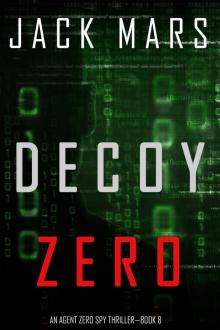 Decoy Zero
Decoy Zero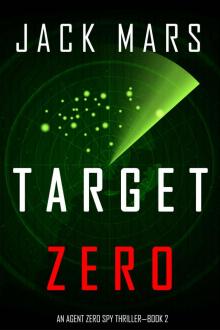 Target Zero
Target Zero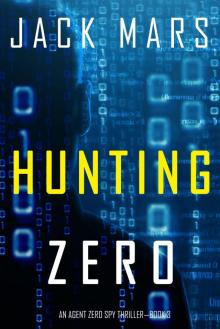 Hunting Zero
Hunting Zero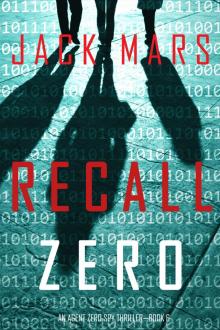 Recall Zero
Recall Zero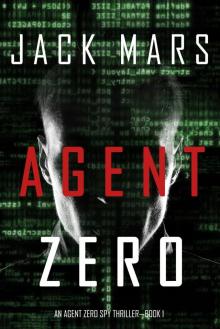 Agent Zero
Agent Zero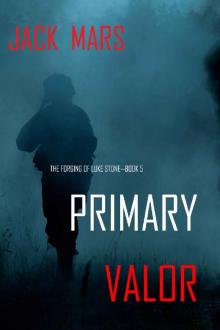 Primary Valor
Primary Valor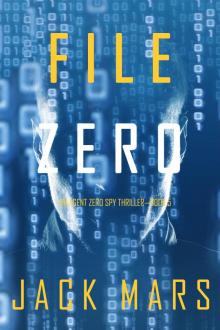 File Zero
File Zero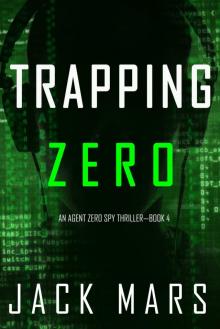 Trapping Zero
Trapping Zero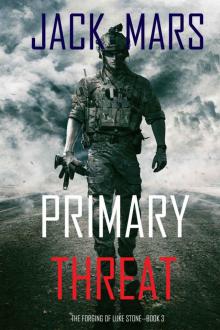 Primary Threat
Primary Threat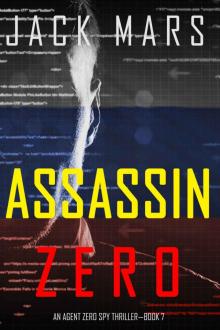 Assassin Zero
Assassin Zero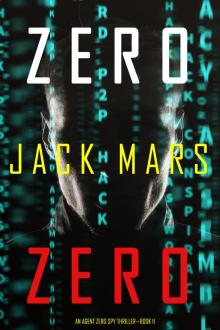 Zero Zero
Zero Zero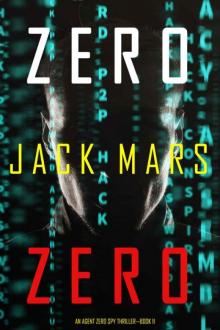 Zero Zero (An Agent Zero Spy Thriller—Book #11)
Zero Zero (An Agent Zero Spy Thriller—Book #11)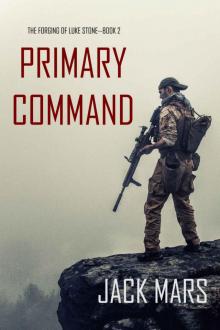 Primary Command
Primary Command![[Luke Stone 02.0] Oath of Office Read online](http://i1.bookreadfree.com/i/03/21/luke_stone_02_0_oath_of_office_preview.jpg) [Luke Stone 02.0] Oath of Office
[Luke Stone 02.0] Oath of Office House Divided
House Divided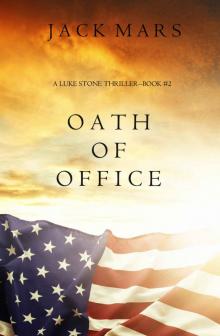 Oath of Office (a Luke Stone Thriller—Book #2)
Oath of Office (a Luke Stone Thriller—Book #2) Our Sacred Honor (A Luke Stone Thriller—Book 6)
Our Sacred Honor (A Luke Stone Thriller—Book 6)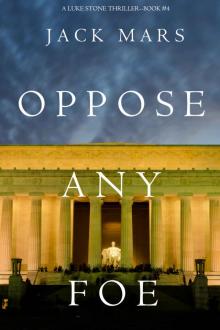 Luke Stone 04 - Oppose Any Foe
Luke Stone 04 - Oppose Any Foe Our Sacred Honor
Our Sacred Honor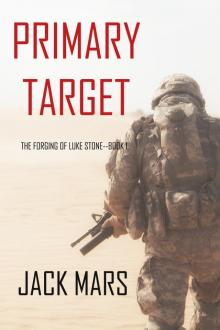 Primary Target
Primary Target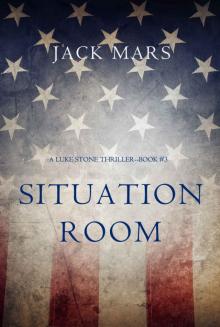 Luke Stone 03 - Situation Room
Luke Stone 03 - Situation Room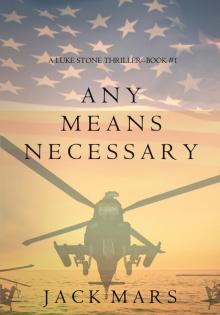 Any Means Necessary: A Luke Stone Thriller (Book 1)
Any Means Necessary: A Luke Stone Thriller (Book 1)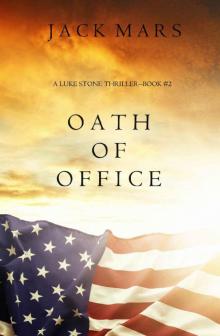 Oath of Office
Oath of Office